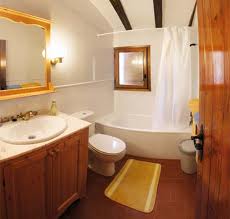You’re going to find…
Nouns gender and the Plural Form (Masculino/Femenino/Plural)
Ser/Tener (“To be”/”To have”)
Personal Pronouns (Pronombres personales)
Vocabulary: Family and other kinds of relationships
Dialogue
Exercises
Some wonder about Spain and South America and a little tip!
Key
NOUNS GENDER AND THE PLURAL FORM
How to create the masculine, the feminine and the plural forms of nouns and adjectives:
Masculine/Singular: the adjectives and the nouns end in – o or in a consonant. Examples: camarero (“waiter”), papel (“paper”)
Feminine/Singular: the adjectives and the nouns end in –a, -esa, -iz, -isa, -ina. Examples: casa (“house”), abadesa (“abbess”), actriz (“actress”) sonrisa (“smile”), gallina (“chicken”)
Masculine/Feminine/Plural: the adjectives and the nouns end in –s when the word ends in a vowel (for instance, the plural of camarero is camareros and the plural of casa is casas). If the adjectives or the nouns end in a consonant, then their plural form ends in –es (for instance, the plural of papel is papeles and the plural of actriz is actrices).
VERBS: TO BE/TO HAVE (Presente de Indicativo-Present)
SER (TO BE)
Yo soy
Tú eres
Él/Ella/Usted es
Nosotros somos
Vosotros sois
Ellos/Ellas/Ustedes son
TENER (TO HAVE)
Yo tengo
Tú tienes
Él/Ella/Usted tiene
Nosotros tenemos
Vosotros tenéis
Ellos/Ellas/Ustedes tienen
In Spanish, “to be” can also be translated as estar. We’re going to learn the difference between ser and estar in the next lessons.
Remember this: the auxiliar verb in Spanish, which corresponds to “to have”, is haber but we’re going to need it when we’re going to learn the past tenses.
PERSONAL PRONOUNS
Yo
Tú*
Él/Ella/Usted*
Nosotros
Vosotros*
Ellos/Ellas/Ustedes*
*In Argentina people say vos instead of tú. Usted and Ustedes are the polite forms: in English we use you to talk to anyone but in Spanish you should use usted when you talk to a person you don’t know or ustedes when you talk at least to two persons and you don’t know them. Anyway, you should know that actually people don’t use so frequently these polite forms. Vosotros is more used in Spain: in South America people use ustedes instead of vosotros.
VOCABULARIO (FAMILY AND OTHER KINDS OF RELATIONSHIPS)
| FAMILIA |
FAMILY |
| Padres |
Parents |
| Madre |
Mother |
| Mamá |
Mum, mummy |
| Padre |
Father |
| Papá |
Daddy, dad |
| Hermano-a |
Brother/Sister |
| Tío |
Uncle |
| Tía |
Aunt |
| Abuelo- a |
Grandfather, grandaddy/Grandmother, granny |
| Sobrino-a |
Niece/Nephew |
| Nieto-a |
Grandson/Granddaughter |
| Bisabuelo-a |
Great grandfather/Great grandmother |
| Parientes |
Relatives |
| OTROS TIPOS DE RELACIONES |
OTHER KINDS OF RELATIONSHIP |
| Amigos/Amigas |
Friends |
| Novio-a |
Boyfriend/Girlfriend |
| Colega de trabajo/Compañero-a de trabajo |
Workmate |
| Colega de facultad/Compañero-a de facultad |
Schoolmate, university mate |
| Compañero de escuela |
Schoolmate, classmate |
| Prometido-a |
Fiancé/Fiancée |
| Marido-Esposo/Mujer-Esposa |
Husband/Wife |
NACIONALIDAD (NATIONALITY)
These are some nationalities; it doesn’t exist a real rule to form these adjectives. Surely you’ll learn them all practising the language. Moreover you should pay attention to the accents when you write them. We’re going to learn soon the accentuation rules.
In Spanish we don’t write the nationality adjectives with the capital letters as we do in English, unless they are at the beginning of a sentence.
Americano-a (América), American
Estadounidense-a (Estados Unidos), American
Canadiense-a (Canadá), Canadian
Mexicano-a (México), Mexican
Italiano-a (Italia), Italian
Inglés-Inglesa (Inglaterra/Reino Unido), English
Francés-Francesa (Francia), French
Alemán-Alemana (Alemania), German
Español-a (España), Spanish
Africano-a (África), African
Japonés-Japonesa (Japón), Japanese
Chino-a (China), Chinese
Australiano-a (Australia), Australian
Ruso-a (Rusia), Russian
Árabe (Arabia Saudí), Arab
DIALOGUE
Mark and Sophie study journalism. Before the beginning of their first lesson they drink coffee at the coffee machine where they meet Zhao, a chinese student.
Mark y Sophie estudian periodismo. Antes de que empiece su primera clase toman café cerca de la máquina de café y allí encuentran a Zhao, un estudiante chino.
Zhao: ¡Hola!
Mark y Sophie: ¡Hola!
Zhao: ¿Vosotros estudiáis periodismo?
Mark: Sí, ¿tú también?
Zhao: Sí. ¿De dónde sois?
Sophie: Somos estadounidenses, ¿y tú?
Zhao: Yo soy chino.
Translation
Zhao: Hi!
Mark and Sophie: Hi!
Zhao: Do you study journalism?
Mark: Yes, we do. And you?
Zhao: Me too. Where are you from?
Sophie: We’re American and you?
Zhao: I’m Chinese.
- Questions
1) ¿De dónde es Zhao?
2) ¿De dónde son Mark y Sophie?
3) ¿Qué estudian?
Right answers/Respuestas correctas: …/3
SHORT TEXT (KEY AT THE END OF THE LESSON)
- Read the following text, translate it in English then write a similar text about yourself
1. En mi familia hay cinco personas: mi madre, mi padre, mi hermana, mi hermano y yo. 2. Mi madre se llama Sonia y tiene 40 años. 3. Mi padre se llama Nicolás y tiene 39 años. 4. Mi hermana se llama Lucía y tiene 15 años y 5. mi hermano se llama Lucas y tiene 14 años. 6. Yo me llamo María y 7. tengo 18 años. 8. Mis mejores amigos se llaman Lisa y Pablo y 9. mi novio se llama Andreas.
Right answers/Respuestas correctas: …/9
NEW BASIC SENTENCES
¿De dónde eres/es/sois/son?=Where are you from?
Soy/es/somos/son (nacionalidad)=I’m…(nationality)
En mi familia hay … personas=In my family there are … persons
EXERCISES (KEY AT THE END OF THE LESSON
3. Ser/Tener
Choose the right verb! In the brackets you can find some words’translation that could help you.
1) Vosotros … 35 años.
2) Yo … sensible.
3) Tú … muchos amigos.
4) Simon … un perro (“dog”).
5) Tú … alto (“tall”).
6) Ellos … una casa grande (“big”).
7) Monica … rubia (“blonde”).
8) Nosotros … ingleses.
9) Miguel …un amigo japonés.
Right answers/Respuestas correctas: …/9
4. Masculine/Feminine/Plural
Write the right form of the adjectives in the brackets:
1) Tus perros son muy … (grande).
Your dogs are very big.
2) Mi casa es … (pequeño).
My house is small.
3) Michelle es mi … (nieto).
Michelle is my granddaughter.
4) Julia es muy … (deportivo).
Julia is very sporty.
5) Tus amigos son … (divertido).
Your friends are funny.
6) Alice piensa que eres … (inteligente).
Alice thinks you’re smart.
7) Eres demasiado … (desordenado).
You’re too messy.
8 ) Esta música es muy … (aburrido).
This music is very boring.
Right answers/Respuestas correctas: ……/8
5. Change the form of the following words into plural
1) bebé bonito (“cute child”): …………………………
2) chica divertida (“funny girl”): …………………………
3) salida obligatoria (“obligatory exit”): ……………………….
4) mejor amigo (“best friend”): …………………………………….
5) mi abuelo (“my grandpa”): …………………………………………
6) chico inteligente (“smart guy”): ……………………………………
7) misma casa (“same house”): …………………………………………
Right answers/Respuestas correctas: ……/7
6. Choose the right pronoun for every sentence
Ellos/tú/vosotros/usted
1) …….es muy amable (“….are very kind”).
2) ………..conoces mi amiga (“…..know my friend”).
3) …….van a tu casa (“…..go to your house”).
4) ………..no sois de mi país (“….are not from my country”).
Right answers/Respuestas correctas: …../4
6. Choose the right pronoun for every sentence
Ellos/tú/vosotros/usted
1) …….es muy amable (“….are very kind”).
2) ………..conoces mi amiga (“…..know my friend”).
3) …….van a tu casa (“…..go to your house”).
4) ………..no sois de mi país (“….are not from my country”).
Right answers/Respuestas correctas: …../4
7. Look at the flags and write below the country or the nationality
 ………………………
………………………
 ……………………………..
……………………………..
 ………………………………………
………………………………………
Right answers/Respuestas correctas: …/3
SOME WONDER ABOUT SPAIN AND SOUTH AMERICA AND A LITTLE TIP!
ARABIC ORIGIN OF SOME WORDS
Spanish language has some words which have an arabic origin because of historical reasons. For instance, almost all the words which begin with al- (almohada, “pillow”, albóndiga, “meatball”, etc.) have this origin.
El idioma español tiene algunas palabras de origen árabe por razones históricas. Por ejemplo, casi todas las palabras que empiezan con al- (almohada, albóndiga…) tienen esta origen.
MOVIES
If you watch a movie in Spanish try to watch it only with subtitles and, if it’s possible, choose the Spanish subtitles. At the beginning you will have to make an effort but this way you will learn words and typical expressions quickly and you’ll remember them with no effort. Moreover, these movies show you the culture of Spain and of South America.
Si miras una película en español, intenta mirarla sólo con subtítulos y, si es posible, elige los subtítulos en español. Al principio te va a costar pero de esta manera vas a aprender palabras y expresiones típicas rápidamente y te acordarás de ellas sin ningún esfuerzo. Además estas películas te muestran la cultura de España y de Latino America.
KEY
1. Zhao es chino/Mark y Sophie son estadounidenses/Ellos estudian periodismo.
2. 1. In my family there are five persons: my mother, my father, my sister, my brother and me. 2. My mother’s name is Sonia and she’s 40. 3. My father’s name is Nicolás and he’s 39. 4 My sister’s name is Lucía and she’s 15 and 5. my brother’s name is Lucas and he’s 14. 6. My name’s María and 7. I’m 18. 8. My best friends’ names are Lisa and Pablo and 9. my boyfriend’s name is Andreas.
3. tenéis/soy/tienes/tiene/eres/tienen/es/somos/tiene
4.grandes/pequeña/nieta/deportiva/divertidos/inteligente/desordenado-desordenada/aburrida
5. bebés bonitos/chicas divertidas/salidas obligatorias/mejores amigos/mis abuelos/chicos inteligentes/mismas casas
6. usted/tú/ellos/vosotros
7. Francia-francés-francesa/Italia-italiano-a/Canadá-canadiense-a
Right answers/Respuestas correctas: …/47
If your right answers are between 39 and 47, great job!
If your right answers are between 30 and 38…maybe you should review something: look at the exercises, realize where you made more mistakes then review the topic.
If your right answers are less than 29…maybe you didn’t pay attention to the lesson or you looked at it quickly. Review it and I’m sure that you will succeed!


































